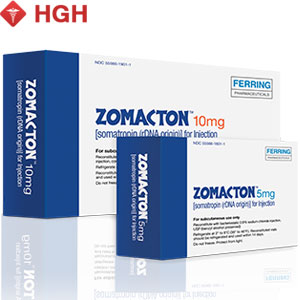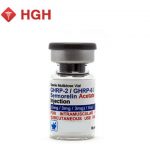Testosterone is a key hormone in males. When the testosterone drops below the normal level, it is referred to as low testosterone. Low testosterone can cause infertility by impacting fertility, decreasing sperm production, causing erectile dysfunction and reducing the sex drive. The medical term for a low testosterone level is called low T or hypogonadism.
There may still be enough testosterone remaining for sperm production. The risk factors for low T and infertility include:
- Testicular injury
- Excessive consumption of alcohol
- Advancing age
- Obesity
- Diabetes
- Chronic use of narcotics
- Cancer treatments including chemotherapy
- Marijuana abuse

In some cases, losing weight and quitting smoking may help naturally balance the level of testosterone. One of the most common treatments for low testosterone levels infertility is hormone replacement therapy. The normal testosterone level for a man is roughly 270 to 1,070 nanograms. If the testosterone is below this level, it is considered low. This level can also differ between men. Sometimes, low testosterone begins during fetal development or becomes apparent during childhood. A wide variety of issues can be caused by hypogonadism including altering physical characteristics, hampering normal testosterone production and decreasing the growth of hair.
Testosterone or androgen is a male sex hormone located in the male testes and necessary to produce sperm. This impacts the mans's perception of both sexual function and virility. Testosterone is important for developing bones, muscles, the testicles and the penis. Women and men both have testosterone, but the amount is higher in males. Age is the number one cause of low testosterone. As a man ages, it is normal for his testosterone level to drop. This usually happens during middle age. There are doctors who believe this drop is normal and do not believe any actions are necessary. Other physicians believe hormone replacement therapy is a viable option for low T and infertility.
Low Testosterone Infertility Treatment
The number of men receiving treatment for low testosterone and infertility has increased significantly during the last few years. This is largely due to the treatments and medications now available for effective treatment. It is important to note if a man is trying to conceive a child, he should not attempt to treat low testosterone with medications. In some cases, low testosterone cause infertility, although not directly. Healthy sperm can be produced despite low testosterone because this production is also stimulated by several different hormones. One effect of low testosterone is a lower production of sperm. The sperm is actually produced in the testicles, so the level is much higher than the levels in the blood.
Low testosterone can cause infertility. Low levels can also cause a decreased sex drive and lessen the desire for sex. Erectile dysfunction can be caused when a man has less erections or erections that have lost strength over time. This makes it much harder to have sex frequently enough to reproduce or to reach climax. In addition to aging, a male's level of testosterone is also impacted by drinking too much alcohol, chronic opioid use, marijuana use, the hormones present in the food consumed and the intake of soy. Low levels of testosterone can also be caused by kidney disease, late or early puberty and testicular cancer.
The additional risk factors include:
- An injury to the testicles
- Diabetes
- Obesity
- Cancer treatments including radiation and chemotherapy
A man can have his testosterone levels checked by a physician. This test is generally taken during the morning because the testosterone levels are usually highest at this time of the day. A sample of blood is drawn and analyzed to establish the testosterone level. The recommendation is for a man to have two tests prior to seeking low testosterone infertility treatment to ensure the results from the first test were accurate. The decision to receive treatment should be based on how low the testosterone level is and if there are any bothersome symptoms. Low testosterone and infertility can cause:
- A decreased sex drive
- Less erections
- Weaker erections
- Fatigue
- Decreased muscle mass
- Mood swings
Low testosterone and male infertility can be treated with TRT or testosterone replacement therapy. There are also lifestyle changes that can make a difference.
The Lifestyle Changes
One of the best ways to help prevent low testosterone levels infertility is for a man to take care of his testicles properly. This includes ensuring the scrotum and testicles remain cool. Some men need to avoid saunas, hot tubs and keep laptop computers off their laps.
Other effective options include:
- Quitting smoking
- Losing weight to increase the testosterone level
- Eating a healthy and nutritious diet
- Exercising
- Testosterone replacement therapy
Low testosterone cause infertility and can decrease the quality of life, energy levels and the sex drive. Testosterone replacement therapy boosts the levels of testosterone using several different methods. This includes:
- Oral tablets
- Injections in the muscle
- Nasal sprays
- Patches
- Gels
Low Testosterone and Female Infertility
One of the most critical female reproductive hormones is estrogen. This is produced in a female's ovaries by developing follicles. This includes the follicle responsible for releasing the egg or the corpus luteum and the placenta. Hormone replacement therapy assists in bringing the female body back into balance to help eliminate low testosterone and female infertility. Despite the fact men have higher levels of testosterone than women, this hormone is almost as important for the fertility of a woman as estrogen. The estrogen assists in the creation of a thick endometrium and impacts the menstrual cycle. The estrogen in a man assists in the regulation of healthy sperm maturity.
When a woman has an estrogen deficiency, hormone replacement therapy is often recommended to prevent numerous symptoms. This includes:
- Night sweats
- Hot flashes
- Headaches
- Vaginal dryness
Not enough estrogen can also result in an impact on fertility due to the prevention of ovulation. When the lining of the uterus becomes too thick, fertilized eggs are unable to implant. Not enough of the Luteinizing Hormone can cause an estrogen deficiency. This hormone regulates how much estrogen is manufactured. Estrogen deficiencies can also be caused by:
- A malfunction of the pituitary gland
- Excessive exercise
- An eating disorder
- Being underweight
Infertility issues can be effectively treated, but a prescription is required for hormone replacement therapy. It is highly recommended any individual impacted with a fertility issue should schedule a consultation with a physician as soon as possible.




